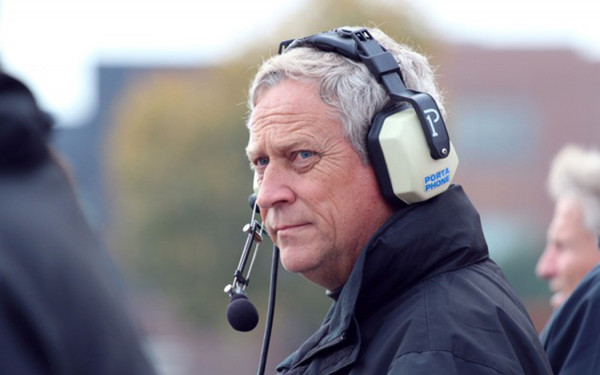Not Just Another Medal
6-time Olympic Medallist and Humanitarian Clara Hughes Awarded Loyola Medal
On the 14th day of her 110-day, 12,000-kilometer bicycle ride around Canada to support and promote awareness for mental health, Olympic speed-skating and cycling medallist Clara Hughes took a quick break from biking and stopped by Concordia, where she received one of the university’s most prestigious awards—the Loyola Medal.
Awarded notably to Habs legend Jean Béliveau in 1995 and to humanitarian Roméo Dallaire in 2006, the Loyola Medal is the highest non-academic award given by the university to “a man or a woman whose character, genius and philosophies have […] enriched the heritage of humanity at large” according to the university’s website.
“It was pretty emotional for me being here today because I thought so much about my dad,” Hughes told The Link moments after giving her acceptance speech on Thursday. Hughes’s father passed away last summer after suffering from advanced dementia.
In the ’60s, her father, Kenneth James Hughes, an apprentice mechanic, decided to complete his secondary school diploma at Sir George Williams High School. He then graduated from Sir George Williams University—which merged with Loyola College to form Concordia in 1974—before going on to teach at the University of Manitoba for 23 years.
“This [medal] means the world to me and it would’ve meant the world to my dad,” said Hughes.
The six-time Olympic medallist was awarded the golden-coated medal at the Loyola campus as university executives, staff and student athletes looked on. Clara received a thundering ovation at the end of her speech, as Concordia President Alan Shepard and others beamed with pride.
“It’s an awesome day for Concordia,” said Shepard.
“We’re a strong and awesome place and having people like Clara Hughes come here [to] share her story with us is great.
“The work she does as the [national] spokesperson of Bell’s mental health initiative is extremely important for individual people and for the good order of society,” he continued.
Hughes set off on her cross-country initiative, “Clara’s Big Ride,” on March 14 and plans to bike through 95 communities across Canada with the goal of raising awareness for mental illness, which affects one in five Canadians every year, and to eliminate the stigma around mental disorders.
Hughes’ journey will conclude on Parliament Hill in Ottawa on Canada Day.
“I wanted to put [the fact that I had a mental health problem] behind me every day, forget about it and move on, but that’s what I did for 23 years and that’s what put me in the state of clinical depression,” Hughes told The Link.
“This whole ride and campaign is about opening up the discussion on mental illness. I can actually consider myself lucky to have that experience and […] a family history of mental illness that I can share,” she continued.
“People have connected to it and in turn have told their stories and that’s what means the most to me—activating people, ending the silence—and this ride is about blowing it out of the water.”
The Loyola Medal is given out only during special occasions rather than annually. Each recipient is chosen unanimously by a committee comprised of three representatives of the university and three members of the Loyola Alumni Association, as well as association president Donal Ryan.
“It’s very nice to give it to somebody who is so young, so involved and who has done so much with her life. She’s a role model,” said Ryan, mentioning how Hughes impacted even his own family.
“Clara was front and centre in the creation of Right To Play in Canada,” he continued.
Right To Play is an “international humanitarian organization that uses sport and play to educate and empower children and youth to overcome the effects of poverty, conflict and disease in disadvantaged communities,” according to its website.
“I have a nephew who went to Africa to teach kids in Uganda how to play soccer. He was inspired by her,” said Ryan.
With thousands of kilometres left in her “Big Ride,” Hughes hopes to keep inspiring people and wants to bring hope of a better life to all those she encounters—both during and after her journey.
“The struggles that [ I ] go through on [my] bike don’t matter. […] What matters is to share the discussion about mental health and hopefully ignite and show how important it is to act,” said Hughes just before ending her speech.
“The responsibility of [receiving the Loyola Medal] for me is that I’ll never, ever stop, and I guarantee you and I promise you that I will never stop until the day I die, trying to make a difference.”

5_900_662_90.jpg)
_600_832_s.png)

_600_375_90_s_c1.jpg)
4_1_600_375_90_s_c1.jpg)
_600_375_90_s_c1.jpg)
